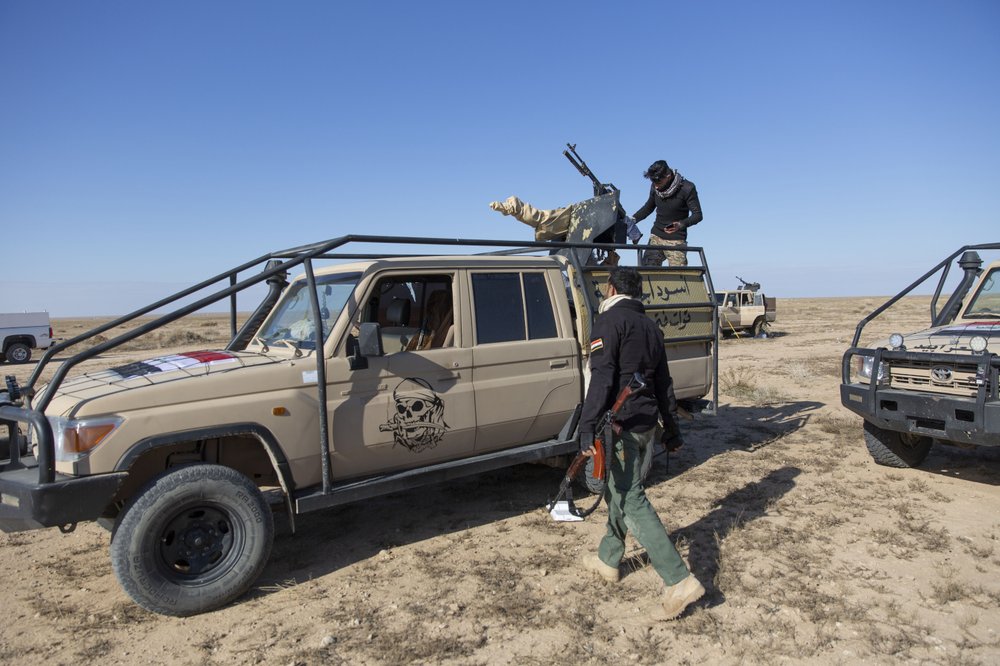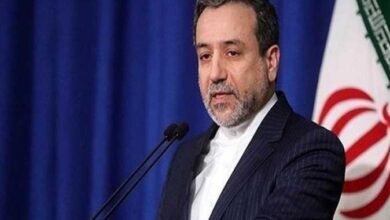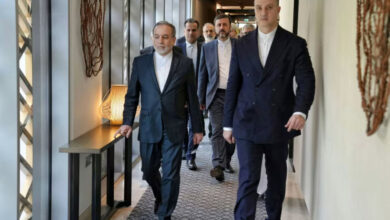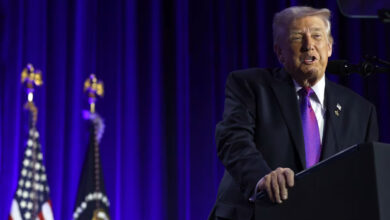
BAGHDAD (Reuters) — A top Iraqi militia leader warned of a strong response against U.S. forces in Iraq following air strikes in Iraq and Syria overnight that hit several bases of his Iranian-backed group and killed at least 25 people.
The U.S. military carried out air strikes on Sunday against the Iranian-backed Kataeb Hezbollah militia group in response to the killing of a U.S. civilian contractor in a rocket attack on an Iraqi military base, officials said.
Iraqi security and militia sources said at least 25 militia fighters were killed and at least 55 wounded following three U.S. air strikes in Iraq.
“The blood of the martyrs will not be in vain and our response will be very tough on the American forces in Iraq,” senior commander Jamal Jaafar Ibrahimi, known by his nom de guerre Abu Mahdi al-Muhandis, said late on Sunday. Iran said it strongly condemned the raids as “terrorism”.
Muhandis is a senior commander of Iraq’s Popular Mobilization Forces (PMF), an umbrella grouping of paramilitary groups mostly consisting of Iran-backed Shia militias that was formally integrated into Iraq’s armed forces.
He is also one of Iran’s most powerful allies in Iraq and formerly headed Kataeb Hezbollah, which he founded.
Iraqi security sources said on Monday that U.S. forces in Iraq’s northerly Nineveh province were ramping up security overnight, with U.S.-led coalition jets circling the perimeter of its military bases in Mosul and Qayarah.
‘INSOLENT ATTACK’
Tensions have heightened between Tehran and Washington — Iraq’s two main allies — since last year when President Donald Trump pulled the United States out of Tehran’s 2015 nuclear deal with six powers and reimposed sanctions that have crippled Iran’s economy.
The air strikes come at a troubled time of protests in Iraq with thousands taking to the streets to condemn, among other things, militias such as Kataeb Hezbollah and their Iranian backers. They also demand an overhaul of a political system they see as corrupt and keeping most Iraqis in poverty. More than 450 people have been killed in unrest as security forces have sought to quell anti-government demonstrations.
The PMF bolstered Iraq’s security forces during their battle to retake a third of the country from Islamic State, helping secure victory against the militants.
They were later formally integrated into Iraq’s official security structure and also wield large political influence.
There was no immediate comment from the Iraqi government on the air strikes. Prime Minister Adil Abdul Mahdi, who is backed by Iran and its allies, resigned last month as the protests continued but has remained in office in a caretaker capacity.
Iraq’s Fatih alliance, which holds the second-largest number of seats in parliament and largely consists of militia leaders, called the air strikes an attack on Iraq’s sovereignty.
“The insolent attack by American forces on security forces which targeted the 45th and 46th brigades of the Popular Moralization Forces in the Qaim area is an attack on national sovereignty and on Iraq’s dignity,” it said in a statement.
Lebanon’s powerful Shia group Hezbollah, also backed by Iran, also condemned the air strikes, calling them a blatant attack on Iraqi sovereignty, security, and stability.
Reporting by Ahmed Rasheed; Additional reporting by Eric Knecht in Beirut and Jamal Badrani in Mosul; Writing by Ahmed Aboulenein; Editing by William Maclean
Image: Paramilitary Popular Mobilization Forces and local tribal militias participate in the military operations of the Iraqi army Seventh Brigade, at the start of the eighth phase of the operation, in Anbar, Iraq, on Sunday, Dec. 29, 2019 (AP Photo/Nasser Nasser)




